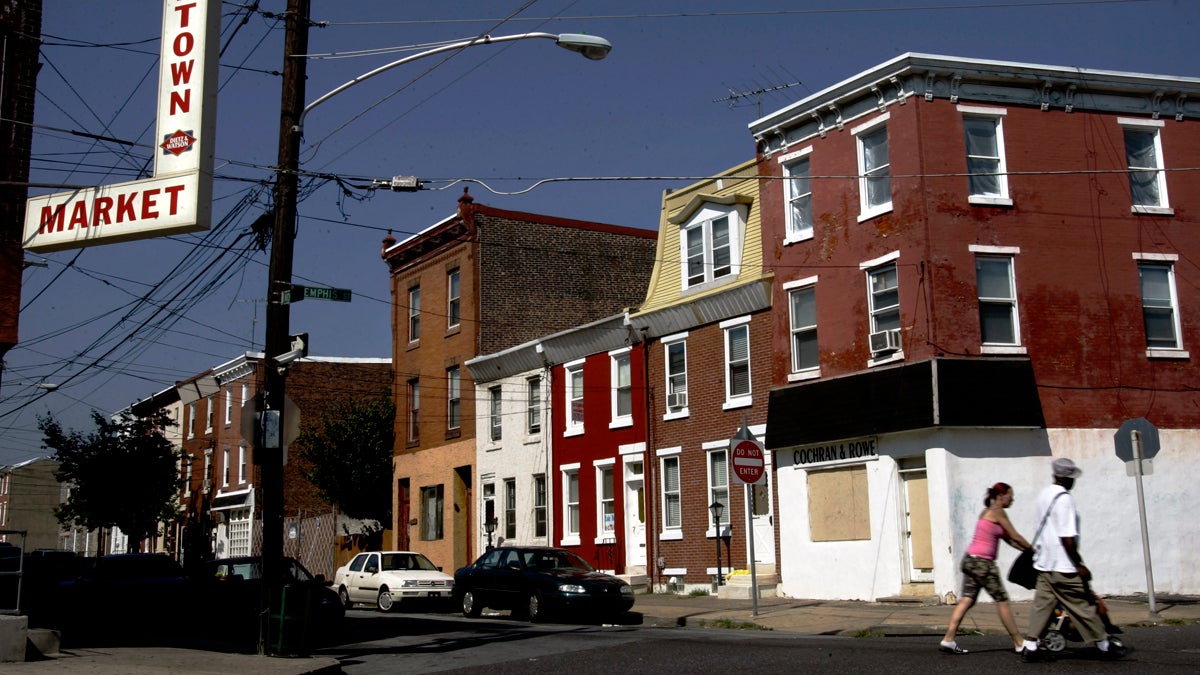Ideas Worth Stealing: Agreements between developers and communities

A street in the Fishtown neighborhood of Philadelphia is seen near Sugarhouse casino. In 2008
How communities can ensure public investment benefits the public.
A developer wants to build an ice cream factory on a stretch of vacant lots in your city. The city is eager to have the ice cream companies and woos them with tax abatements and other public subsidies.
“Jobs!” the city council cries. “An increased tax base!”
“Tempting,” the neighborhood says, “But what will it do for us?”
Enter community benefits agreements (CBAs), private contracts between a developer and a community group, or a coalition of community groups. The two parties negotiate what benefits the developer will provide to a community in exchange for public subsidies. The developer might promise to hire local labor, build affordable housing, or contribute to a community fund.
A new idea
As far as contracts go, a CBA is the new kid on the block, says Edward De Barbieri, director of the Urban Economic Development Clinic at Brooklyn Law School. “We’ve only seen CBAs play out in the last 15 years.”
But they’re becoming more and more common as cities seek to attract large development projects and communities question their benefit to the public. “CBAs are indicative of communities’ desire to see tangible benefits of development,” says De Barbieri.
The first full CBA in the nation was negotiated in Los Angeles in 2001 when a large, multi-purpose arena, the Staples Center, was being built. Since then, communities from Cleveland, Ohio to Portland, Oregon have used them to ensure that public money invested in development provides returns to the public.
“All of these developers should be good neighbors,” Maggie O’Brien wrote in an email to Keystone Crossroads. O’Brien was president of Philadelphia neighborhood group Fishtown Action (FACT) in 2008. FACT and New Kensington Community Development Corporation signed a CBA with HSP Gaming, L.P., the developer of the SugarHouse Casino. “They stand to make millions and millions of dollars — what harm does it do their business to behave like ‘real neighbors’ and work with the community?”
CBAs are negotiated on a case-by-case basis: new project, new agreement.
Detroit’s CBA would be different
But in Detroit in this November’s election, voters will be asked to weigh in on creating a city-wide system for CBAs.
“The CBA process would be triggered by the amount of public subsidy and how large the project is,” says Rashida Tlaib, Community Partnerships & Development Director at the Sugar Law Center in Detroit, which assisted the citizen-led proposal in drafting its language.
Voters will have two choices: One proposal from a citizen initiative led by Rise Together Detroit, and the other from Detroit City Council.The two proposals differ on when the process would kick in: the citizen proposal kicks in at $15 million and $300,000 of public subsidy; the other at $75 million and $1 million. Currently, developers in Detroit have to sign a development agreement with the city. But the problem, says Tlaib, is that there’s little political courage to hold developers accountable if they fail to do what they say they will. By requiring developers to also negotiate a community benefit agreement, communities can hold developers accountable.
“It changes who’s in the room and who gets to sign it. We’re raising the standard,” says Tlaib.
Tlaib, O’Brien, and De Barbieri all agreed that CBAs can make important differences for communities, creating tangible, short-term change.
Thanks to the CBA they signed in 2008, the communities around SugarHouse Casino in Philadelphia have been able to pay for improvements such as new computers in schools and refurbished athletic fields.
“I think that businesses that are developing in communities often have the attitude of ‘We’re doing this for you, we are making your neighborhood better,'” wrote O’Brien. “No, you are doing it to make money, and if you want to make our neighborhood better, you need to be involved. You need to do the same as the people who live in the neighborhood — open your wallet and make a difference.”
WHYY is your source for fact-based, in-depth journalism and information. As a nonprofit organization, we rely on financial support from readers like you. Please give today.


